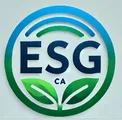ESGCA


Name of the project: Strengthening linkages between environmental issues, social needs and good governance in the education and employment sectors in Central Asia ESGCA
Project Duration: 36 months (01.12.2024-30.11.2027)
Grant amount for KU m. Sh. Ualikhanov: 55,682.80 euro
Name of participating organization, country and role
- University of Genoa, Italy, Coordinator
- Consulting Group on Capacity Building, Kyrgyzstan, Partner 3.
- Public Foundation European Documentation Center, Kyrgyzstan, Partner
- Academy of Public Administration under the President of the Republic of Kyrgyzstan, Kyrgyzstan, Partner.
- Issyk-Kul State University named after K. Tynystanov, Kyrgyzstan, Partner 6.
- Academy of Public Administration under the President of the Republic of Kazakhstan, Kazakhstan, Partner 7.
- Kokshetau University named after Sh. Sh. Ualikhanov Kokshetau University, Kazakhstan, Partner 8.
- Academy of Public Administration under the President of the Republic of Uzbekistan, Uzbekistan, Partner 9.
- Bukhara State University, Uzbekistan, Partner
- Tajik National University, Tajikistan, Partner 10.
- Tajik Agrarian University named after Shirinshokh Shotemur, Tajikistan, Partner. Shirinshokh Shotemur Tajik Agricultural University, Tajikistan, Partner
- State Energy Institute of Turkmenistan, Turkmenistan, Partner 13.
- International University of Oil and Gas, Turkmenistan, Partner 14.
- Lucian Blaga University of Sibiu, Romania, Partner 15.
- Slovak Technical University in Bratislava, Slovakia, Partner 15.
Annotation
The ESGCA regional project is directly related to the competition theme “Sustainable Growth and Jobs”. This project aims to implement a two-year ESG Master's program in 10 universities in five Central Asian countries. To train qualified specialists in the field of effective environmental and social management and governance. To introduce ESG principles in universities, business community and public administration. Three European universities will help to create a sustainable platform that brings together educational institutions, civil servants and businesses to effectively manage environmental and social aspects, create green jobs and train qualified specialists. By creating an international network between the partners, the universities will become a platform that brings together academia, business and government to advance research and innovation and develop new policies in this area. Such convergence will not only contribute to the effective management of environmental and social aspects, but will also serve as a breeding ground for the creation of green jobs. In addition, the training of highly qualified specialists will meet the requirements of the modern labor market. The expected multiplicative effect of the project is aimed directly at 72 lecturers, 100 online lecturers and the university management.
Project objectives
- To improve the quality of higher education in third countries not participating in the Erasmus+ program and increase its relevance for the labor market and society
- To improve the competences, skills and employability of students in third countries not participating in the Erasmus+ program by developing new and innovative educational programs.
- Promote inclusive education, equality, equity, non-discrimination and civic competences in higher education in third countries not participating in the Erasmus+ program
- Improve teaching, staff and student assessment mechanisms, quality assurance, governance, management, leadership, inclusion, innovation, knowledge base, digital and entrepreneurial capacity, and internationalisation of higher education institutions in third countries not participating in the Erasmus+ programme.
- Increase the capacity of HEIs, higher education authorities and competent authorities in third countries not participating in the Erasmus+ programme to modernize their higher education systems, especially in terms of governance and funding, by supporting the identification, implementation and monitoring of reform processes
- Improve teacher training and continuing professional development to influence the long-term quality of the education system in third countries not participating in the Erasmus+ program
- Stimulate institutional cooperation, capacity building and exchange of best practices
- Promote cooperation between different regions of the world through joint initiatives
Expected results
Project Management (PM) is a key activity that ensures the success of the project. Monitoring and evaluation are infused into PM by providing it with tools for project self-reflection (periodic self-evaluation). In addition, special sessions are held at Steering Committee meetings to analyze project activities and products, and to identify the strengths and weaknesses of the partners' work. Evaluation is an ongoing process consisting of both “formal” procedures and “informal” interactions. A quality plan with guidelines for evaluation has been established. In this regard, the evaluation framework is designed to provide the evaluating partner and the entire partnership with effective tools to assess the development of the project in relation to expected results and envisioned outcomes. The integration between monitoring/evaluation activities, quality principles and project-level PM contributes to the management of contingencies.
In this context, the working group leader will coordinate efforts to:
- facilitate coordination between local evaluation activities and the overall project plan;
- provide general guidance to partners;
- facilitate the integration of local experiences to provide data for the final project evaluation;
- provide communication and feedback between evaluation activities and project management to cope with unforeseen circumstances that may arise during project implementation.
Evaluation methods will be based mainly on:
- KPI maps based on LFM reports and questionnaires: we will use online tools to conduct surveys to interview all partners and all stakeholders involved in and benefiting from the project. Participants will complete a questionnaire after each core activity. Reports will be provided every 6 months during the project and after each activity within the working group.
- Peer review between universities: an important activity to raise awareness of the evaluation process among partners.